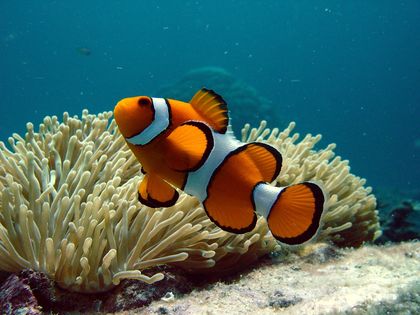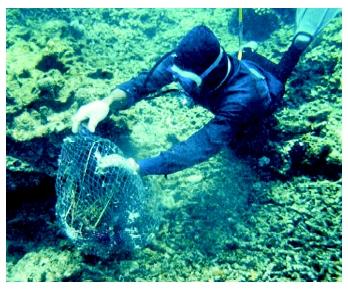Marine Biologist

A marine biologist is someone who studies plants, animals, and other organisms of the oceans, ranging from large marine mammals to microscopic plankton . Marine biologists study such subjects as animal behavior and ecology, biomedical uses of the sea, the commercial importance of the ocean's natural resources, and methods for preservation of species and habitats.
The need for marine biologists has increased because of growing interest in conservation of the oceans, and many are employed by private and government environmental protection and resource management agencies. For example, marine biologists are needed to determine catch quotas for species of fish in order to prevent a decline in population. In addition to performing basic research, they present information to governments and industries

To be well prepared for a career in marine biology, a strong background in mathematics is crucial. One should also take a wide range of science courses in high school and college, such as biology, chemistry, physics, zoology, geology, marine science, oceanography, and atmospheric science. A working knowledge of computers is increasingly necessary for data collection and analysis. Satellite imaging and global information systems (GIS) are common uses of computers in the field.
Summer courses and internships are available worldwide to provide hands-on experience with marine life, the use of field and laboratory equipment, and other aspects of marine research. Employment opportunities are available from the bachelor to the doctorate level, with greater independence, decision-making responsibility, and income at the higher levels.
SEE ALSO Bony Fish ; Cartilaginous Fish ; Coral Reef ; Crustacean ; Estuaries ; Ocean Ecosystems ; Plankton
Lisa Nicole Saladin and Kenneth S. Saladin
Bibliography
American Fisheries Society Jobs Center Online. <http://www.fisheries.org/jobs.html> .
Castro, Peter, and Michael E. Huber. Marine Biology, 3rd ed. Boston: McGraw-Hill, 2000.
Scripps Institution of Oceanography. <http://www.sio.ucsd.edu/> .
Woods Hole Oceanographic Institution. <http://www.whoi.edu/> .
Comment about this article, ask questions, or add new information about this topic: